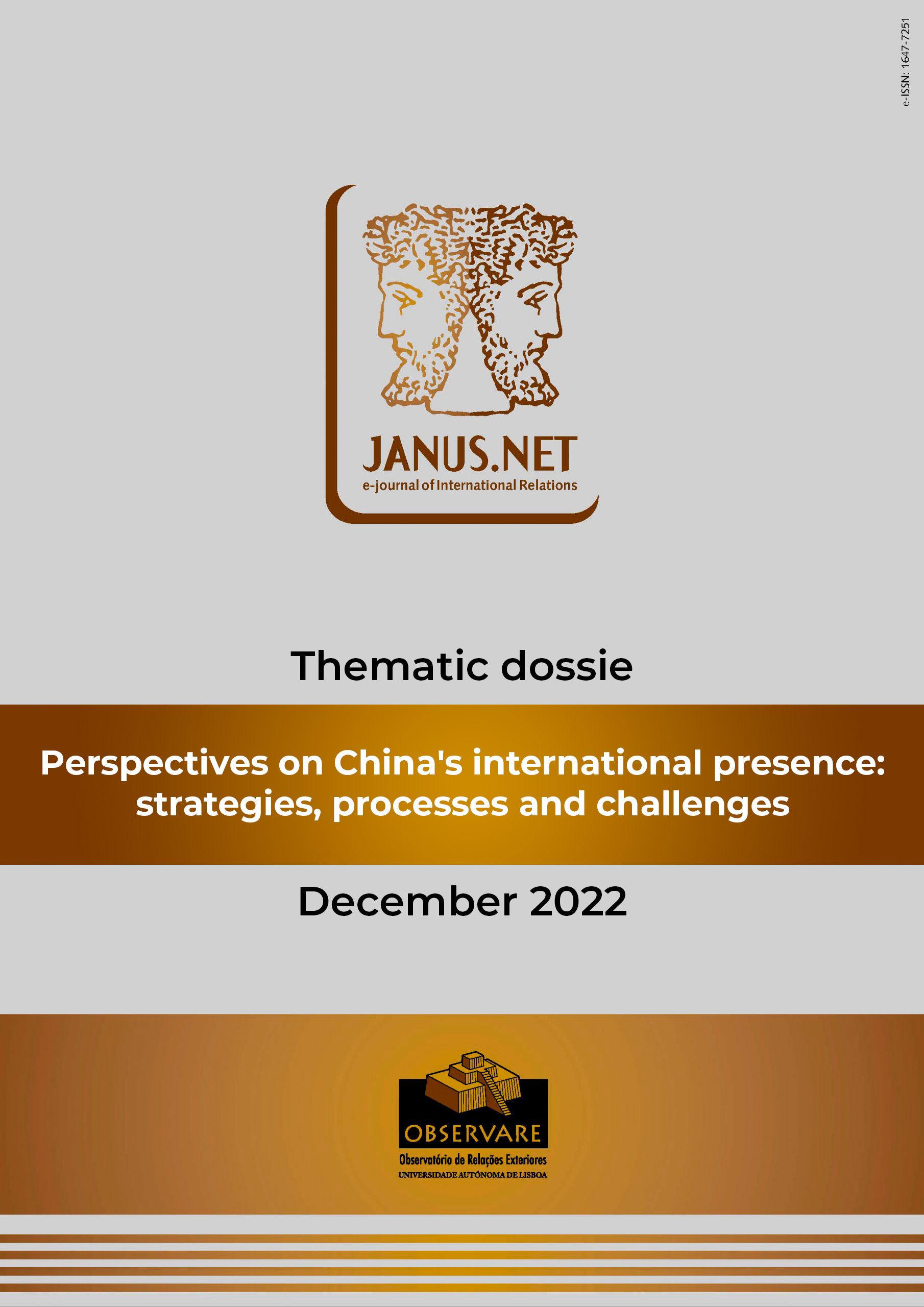Small states, despite their power deficits, are able to influence large states. This paper explores how Portugal appears to have selected strategies to modulate yet improve its relations with China during the Covid19 pandemic. According to the Theory of Asymmetrical Negotiations (TAN) advanced by Habeeb, small states adopt soft strategies when they have high levels of commitment, worse alternatives available to them, and a low degree of control. During the pandemic, an increase in deficits drove Portugal’s government to seek to expand exports, attract investment, and improve its competitiveness. The authors find that Portugal has exhibited different behaviour regarding commitment, seeking alternatives, and exerting control in issues related to investment, export, and competitiveness. Portugal has flexibly employed soft strategies towards China during the pandemic, while reacting to external intervention from the US and maintaining internal compliance within the EU. With these strategies, Portugal has successfully, and without conflict, defended its interests, maintained its EU status, and limited the intensity of competition between the US and China regarding Portugal.
Portuguese strategies towards China during the Covid19 Pandemic.
Instructor of Department of Europe, Xi’an International Studies University (China). Ph.D.
candidate in International Politics and Conflict Resolution which is offered by the Faculty of
Economics in collaboration with the Centre for Social Studies of the University of Coimbra. She
holds a Master’s in Portuguese Literature from the University of Coimbra, as well as a Bachelor of
Portuguese Language and Culture from Xi’an International Studies University. She has acted as a
lecturer in the undergraduate program of the Portuguese of School of Occidental Studies of 西安外
国语大学 Xi’an International Studies University.
President of the Macau Scientific and Cultural Centre. Associate Professor of International
Relations with tenure, accredited at the School of Economics of the University of Coimbra
(Portugal), where she established the course “China and the Portuguese-speaking Countries in
World Trade”. Former head of the International Relations department and coordinator of the
School of Economics International Office at the same university. Holds a Ph.D. degree from the
School of Oriental and African Studies – University of London, a Master degree from the Institute
of Higher European Studies – University of Strasbourg, and a Bachelor degree from the Institute
of Social and Political Sciences – University of Lisbon. She was a Post-doctorate scholar at the
Institute of Political Studies of the Portuguese Catholic University of Lisbon and visiting professor
at the University of Macau, the University of Salamanca and the University of Lyon. She was a
board member of the European Association for Chinese Studies, and the organizer of the 2014
EACS conference in Coimbra; and president of the International Relations Section and member of
the board of the Portuguese Political Science Association. Principal Investigator at the University
of Coimbra on a research project on the role of Macau in China´s relations with the Portuguese
speaking-countries, funded by the Portuguese national funding agency for Science, Research and
Technology; and on a project on South-South Cooperation for the Europe China Research and
Advice Network, supported by the European External Action Service. Auditor of the Portuguese
National Defense Institute. Co-founder of the consulting company ChinaLink, and of the
Observatory for China in Portugal. Author of China and the Macau Negotiations, 1986-
1999 (HKUP) and China’s New Silk Road: An Emerging World Order (Routledge), as well as other
publications available for consultation at: www.uc.pt/feuc/carmen
Resumo
Palavras-chave
Como citar este artigo
Xiaouying, Hou; Mendes, Carmen Amado (2022). Portuguese Strategies towards China during
the Covid19 Pandemic. Janus.net, e-journal of international relations. VOL13 N2, TD1 –
Thematic dossier “Perspectives on China’s International Presence: Strategies, Processes and
Challenges”, December 2022. Consulted [online] on date of the last view,
https://doi.org/10.26619/1647-7251.DT22.5
Article received on 19 June, 2022 and accepted for publication on 25 June, 2022















